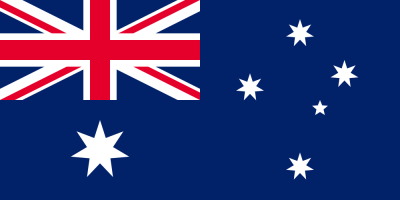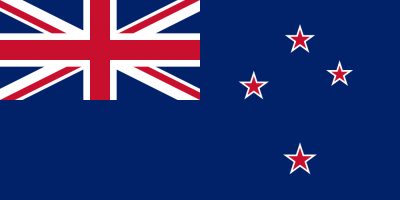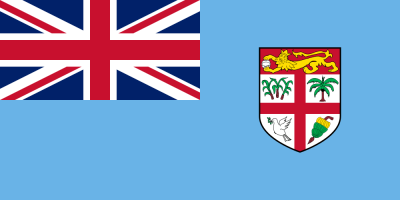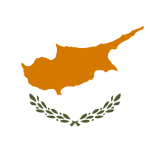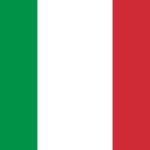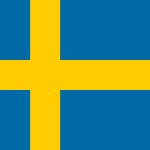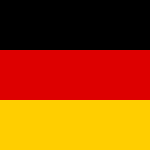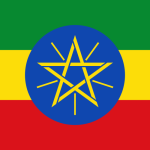Portugal flag color codes proudly displays the iconic green and red colors set against a minimalist background. The vertical bands of color hold deep meaning for the Portuguese people, representing hope and the bloodshed of national battles. In this article, we provide Portugal’s precise flag color codes across various formats, including HTML HEX, RGB, PANTONE, HSL, CMYK, HWB, and NCOL. Whether you need to match the exact green and red hues for a design project or web development, you can reference the official Portugal flag color codes here. With the color values provided below, you can accurately recreate the iconic green and red bands of the Portuguese flag in any digital or print application.
Table of Contents
What are the colors of Portugal flag?
The colors of the Portuguese flag are:
- Green – The green background represents hope and the lush vegetation of the Portuguese landscape.
- Red – The vertical red strip symbolizes the blood shed during the battles for independence from the Kingdom of Leon.
The exact shades are:
- Portuguese Flag Green – Pantone 347 C
- Portuguese Flag Red – Pantone 186 C
In summary, the national flag of Portugal consists of two vertical bands of green and red. The green background conveys hope and nature, while the centered red stripe represents the bloodshed during historical battles for independence.
Portugal flag color codes & Color Names:
RED
| Color Model | Value |
|---|---|
| HTML | #FF0000 |
| HEX | FF0000 |
| RGB | RGB(255, 0, 0) |
| PANTONE | 186 C |
| HSL | HSL(0, 100%, 50%) |
| CMYK | CMYK(0%, 100%, 100%, 0%) |
| HWB | HWB(0, 0%, 0%) |
| NCOL | #D52B1E |
GREEN
| Color Model | Value |
|---|---|
| HTML | #289A35 |
| HEX | 289A35 |
| RGB | RGB(40, 154, 53) |
| PANTONE | 356 C |
| HSL | HSL(120, 59%, 38%) |
| CMYK | CMYK(74%, 0%, 65%, 40%) |
| HWB | HWB(120, 37%, 40%) |
| NCOL | #388235 |
What is the meaning of colors in the Portugal flag?
Green – The green background represents hope and the lush vegetation of Portugal. Green is associated with nature, growth, health and rebirth. It reinforces Portugal’s agricultural abundance.
Red – The red vertical band symbolizes the bloodshed during the 1139 Battle of Ourique against the Kingdom of León and subsequent battles for independence. Red represents sacrifice and courage.
Additional Meaning:
- The green and red together reflect the hope and turmoil in Portugal’s past as a nation.
- Green evokes the Portuguese landscape and agriculture.
- Red signifies the sacrifices made and blood spilled to achieve independence.
In summary, the green background represents hope, nature and growth, while the red stripe commemorates the battles for national independence. The colors memorialize Portugal’s past struggles and bright future as an independent nation. They encapsulate the essence of the Portuguese landscape and spirit.
Explore More Flag Colors:
- Ivory Coast Flag Color Codes
- Haiti Flag Color Codes
- Nicaragua Flag Color Codes
- Cameroon Flag Color Codes
FAQs: Frequently Asked Questions:
Is Portugal cheap or expensive?
Here are some factors to consider when evaluating the cost of living in Portugal:
Cost of Housing:
Rent and property prices can vary based on the region. Cities like Lisbon and Porto may have higher housing costs compared to smaller towns and rural areas.
Food and Dining:
Grocery prices are generally reasonable, and eating out at local restaurants can be affordable. The cost of dining in tourist areas may be higher.
Transportation:
Public transportation is relatively inexpensive, but owning a car may involve additional expenses such as fuel and parking.
Utilities:
Utility bills for electricity, water, heating, and internet are typically moderate.
Healthcare:
Portugal has a public healthcare system, and private health insurance costs may vary. Medical expenses can be reasonable compared to some other European countries.
Entertainment and Leisure:
Cultural activities, events, and entertainment options can be affordable, especially if you take advantage of local offerings.
Education:
Public education is free, but private schools may have tuition fees.
Taxes:
Portugal has a relatively favorable tax environment for expatriates and retirees.
Do I need a visa for Portugal?
Here are some general guidelines:
Schengen Area:
Portugal is a member of the Schengen Area, which is a group of European countries that have abolished border controls between them.
If you are a citizen of a Schengen Area country, you typically do not need a visa for short stays (up to 90 days within a 180-day period).
Non-Schengen Area Countries:
If you are a citizen of a non-Schengen Area country, you may need a visa for short stays, depending on your nationality.
Citizens of certain countries are exempt from the short-stay visa requirement.
Longer Stays:
If you plan to stay in Portugal for more than 90 days or for purposes such as work or study, you may need a specific type of visa or residence permit.
Visa-Free Travel for Specific Countries:
Portugal has visa waiver agreements with certain countries, allowing their citizens to enter Portugal for short stays without a visa.
How to get a visa in Portugal?
Here are some general guidelines:
Schengen Area:
Portugal is a member of the Schengen Area, which is a group of European countries that have abolished border controls between them.
If you are a citizen of a Schengen Area country, you typically do not need a visa for short stays (up to 90 days within a 180-day period).
Non-Schengen Area Countries:
If you are a citizen of a non-Schengen Area country, you may need a visa for short stays, depending on your nationality.
Citizens of certain countries are exempt from the short-stay visa requirement.
Longer Stays:
If you plan to stay in Portugal for more than 90 days or for purposes such as work or study, you may need a specific type of visa or residence permit.
Visa-Free Travel for Specific Countries:
Portugal has visa waiver agreements with certain countries, allowing their citizens to enter Portugal for short stays without a visa.
To obtain the most accurate and up-to-date information regarding visa requirements for Portugal, you should check with the nearest Portuguese embassy or consulate in your home country or visit the official website of the Portuguese government. Additionally, you can use online tools provided by official immigration websites to determine your visa requirements based on your nationality and purpose of travel.
You
How to get a visa in Portugal?
ChatGPT
ChatGPT
The process of obtaining a visa for Portugal depends on the type of visa you need and your purpose of travel. Here are general steps that may guide you through the visa application process:
1. Determine the Type of Visa:
Identify the type of visa you need based on the purpose of your travel. Common types include tourist visas, business visas, student visas, and work visas.
2. Check Visa Requirements:
Visit the official website of the nearest Portuguese embassy or consulate or the official immigration website to check the specific visa requirements for your nationality and the type of visa you are applying for.
3. Complete the Visa Application Form:
Download and fill out the visa application form provided by the Portuguese embassy or consulate. Ensure that all information is accurate and complete.
4. Gather Required Documents:
Collect the necessary supporting documents, which may include:
Passport with at least six months’ validity beyond your intended stay.
Passport-sized photos.
Flight itinerary or reservation.
Proof of accommodation.
Travel insurance.
Proof of financial means to cover your stay.
Additional documents depending on the type of visa.
5. Schedule an Appointment:
Contact the Portuguese embassy or consulate to schedule an appointment for submitting your visa application. Some embassies may require online appointments.
6. Attend the Visa Interview:
Attend the scheduled visa interview, if required. Be prepared to answer questions related to your travel plans, purpose of visit, and other relevant details.
7. Pay the Visa Fee:
Pay the required visa fee. The fee amount can vary depending on the type of visa and your nationality.
8. Wait for Processing:
After submitting your application, wait for the processing period. Processing times can vary, so it’s advisable to apply well in advance of your intended travel date.
9. Receive the Visa:
Once your visa is approved, you will receive it in your passport. Check the visa carefully to ensure that all details are accurate.
10. Travel to Portugal:
With a valid visa, you can travel to Portugal for the approved purpose and duration.
It’s crucial to note that visa requirements and procedures may change, so it’s recommended to check the official website of the Portuguese embassy or consulate and follow their instructions closely. Additionally, consider consulting with the embassy or consulate directly if you have specific questions about the visa application process.
Is English language spoken in Portugal?
English is not the official language of Portugal, it is widely spoken, especially in urban areas, tourist destinations, and among the younger population. Many Portuguese people, particularly those in the hospitality, tourism, and business sectors, are likely to have a good command of English.
How much is rent in Portugal?
here are some general rental price ranges for different types of housing in Portugal:
Lisbon:
In Lisbon, the capital city, rental prices are relatively higher compared to other parts of the country.
Monthly rent for a one-bedroom apartment in the city center can range from €800 to €1,200 or more.
Outside the city center, you may find lower rents, ranging from €600 to €900 for a one-bedroom apartment.
Porto:
Porto, another major city, generally has lower rental prices compared to Lisbon.
Monthly rent for a one-bedroom apartment in the city center may range from €600 to €900.
Outside the city center, rents can be in the range of €500 to €750 for a one-bedroom apartment.
Other Cities and Towns:
In smaller cities and towns, rental prices are generally more affordable.
Monthly rents for one-bedroom apartments can vary but may range from €400 to €700 or more, depending on the location.
Rural Areas:
In rural areas, especially in the interior of the country, rental prices tend to be lower.
Monthly rents for one-bedroom apartments may range from €300 to €500 or less.
Which job is demand in Portugal?
Here are some areas where demand for jobs has been notable:
Information Technology (IT) and Tech Industries:
Portugal has been investing in its technology sector, leading to increased demand for IT professionals, software developers, data scientists, and professionals with skills in emerging technologies.
Healthcare and Life Sciences:
The healthcare sector, including roles such as doctors, nurses, and healthcare professionals, has traditionally been in demand. The life sciences industry, including biotechnology and pharmaceuticals, also offers job opportunities.
Tourism and Hospitality:
Portugal is a popular tourist destination, and jobs in the tourism and hospitality sector, such as hotel management, restaurant staff, and tour guides, have been in demand.
Engineering and Construction:
With ongoing infrastructure projects and construction developments, there is demand for engineers, architects, construction managers, and skilled workers in the construction industry.
Language and Customer Service:
Jobs in customer service, call centers, and language-related roles, especially those requiring proficiency in languages like English, have been in demand.
Finance and Accounting:
The finance sector, including roles in banking, accounting, and financial analysis, has job opportunities, particularly in major cities like Lisbon.
Renewable Energy:
As Portugal focuses on sustainability and renewable energy, there may be opportunities in the renewable energy sector, including roles related to solar and wind energy projects.
Education and English Teaching:
English teaching positions, particularly for those with teaching qualifications and proficiency in English, are often available in language schools and international schools.
Startups and Entrepreneurship:
Portugal has seen growth in its startup ecosystem, creating opportunities in entrepreneurship, innovation, and technology-related ventures.
Digital Marketing and E-commerce:
The rise of online businesses has led to demand for professionals in digital marketing, e-commerce, and related fields.
What is the best currency to use in Portugal?
The official currency of Portugal is the Euro (EUR), and it is the most widely accepted and used currency throughout the country. When visiting Portugal, it’s recommended to use Euros for transactions, as it is the legal tender.

